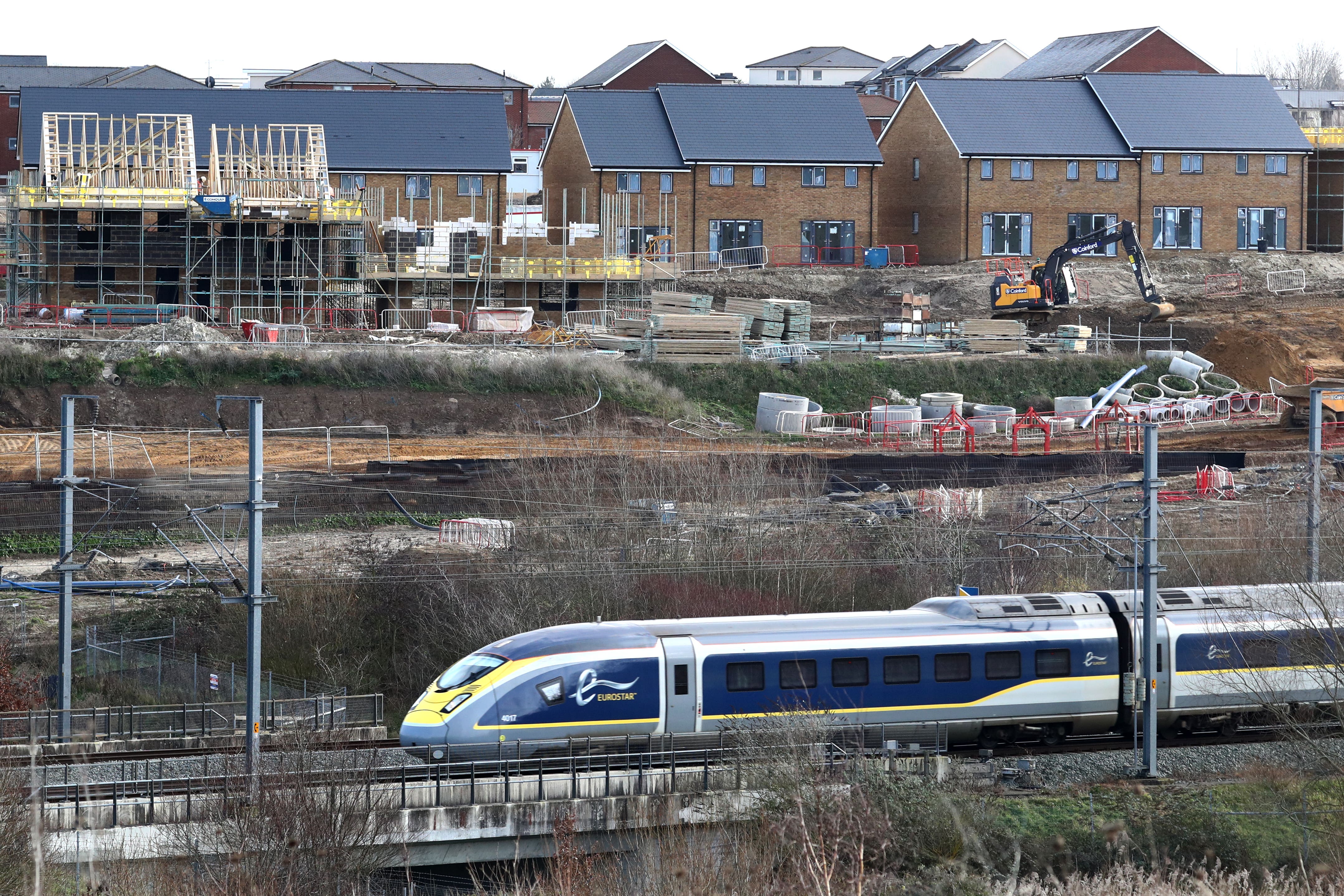UK construction rebound picks up pace but housebuilding slump persists
Commercial and civil engineering helped drive growth for the wider construction industry.

Your support helps us to tell the story
From reproductive rights to climate change to Big Tech, The Independent is on the ground when the story is developing. Whether it's investigating the financials of Elon Musk's pro-Trump PAC or producing our latest documentary, 'The A Word', which shines a light on the American women fighting for reproductive rights, we know how important it is to parse out the facts from the messaging.
At such a critical moment in US history, we need reporters on the ground. Your donation allows us to keep sending journalists to speak to both sides of the story.
The Independent is trusted by Americans across the entire political spectrum. And unlike many other quality news outlets, we choose not to lock Americans out of our reporting and analysis with paywalls. We believe quality journalism should be available to everyone, paid for by those who can afford it.
Your support makes all the difference.A rebound in the UK’s construction industry has picked up pace with activity rising at the fastest rate in more than a year, despite a persistent slump in housebuilding.
The latest S&P Global construction purchasing managers’ index (PMI) scored 53.0 in April, up from 50.2 in March, and the highest level since February last year.
It also surged past the expectations of analysts who had predicted a score of 50.4 for the month.
Any reading above the 50.0 threshold indicates that activity in the industry is increasing, while anything below means it is shrinking.
Lacklustre market conditions in the housebuilding segment continued to weigh on activity
Commercial and civil engineering work – which includes building offices and warehouses, and bigger projects such as railways, airports and stadiums – was the prominent driver of growth in April with new work increasing for the third month running.
Firms said they were seeing greater demand from customers who were feeling more confident about economic conditions improving.
Civil engineering has regularly been the best-performing sub-sector, helping prop up the wider industry which has grappled with a prolonged downturn.
On the other hand, housebuilding has consistently weighed on activity with firms feeling the knock-on effects of higher interest rates leading to weaker demand in the property market.
This remained the case in April with residential housebuilding continuing to fall and construction firms seeing sluggish conditions thanks to borrowing costs remaining elevated.
Tim Moore, the economics director for S&P Global Market Intelligence, said: “The construction sector consolidated its recent return to growth in April, with total industry activity rising at the fastest pace for 14 months amid an ongoing recovery in order books.
“Demand was boosted by greater confidence regarding the broader UK economic outlook.”
But he added: “Lacklustre market conditions in the housebuilding segment continued to weigh on activity.”
Hiring continued to slow last month with companies keeping a tight control over their business costs.
It came as the national minimum wage increased to £11.44 at the start of April, and extended to 21- and 22-year-olds for the first time, which has increased wage pressure for businesses across the UK.
Meanwhile, companies surveyed said they continued to see an improvement in supply conditions, with wait times for key materials shortening to the greatest extent in 2024 so far.
It suggests an improvement in shipping conditions since disruption in the Red Sea pushed up costs for imported building materials earlier in the year.
Max Jones, a director in Lloyds Bank’s infrastructure and construction team, said: “Confidence among contractors is heading in the right direction as inflation moves to more manageable levels for the sector.
“Work in the regions is also providing reasons for optimism.
“Investment is increasingly being directed to social infrastructure projects including schools, prisons and hospitals across the country, while there have also been increases in energy project developments such as offshore wind and hydrogen.”